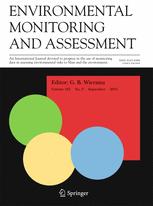 An environmental journal has pulled a 2011 paper following an investigation, which revealed it contained “extensive similarities” with another paper published two years earlier by some of the same authors.
An environmental journal has pulled a 2011 paper following an investigation, which revealed it contained “extensive similarities” with another paper published two years earlier by some of the same authors.
Two of the authors of the newly retracted paper — Zulfiqar Ahmad from Quaid-i-Azam University and Arshad Ashraf of the National Agricultural Research Center, both in Islamabad, Pakistan — were the sole authors of a 2008 paper about modeling groundwater flow in Indus Basin, Pakistan. The 2011 paper — posted online in 2010 — focused on the same topic, but included two additional authors, one of whom told us he was unaware of the previous paper and agrees with the journal’s decision. Ahmad, however, has defended the 2011 paper and asked that the journal remove the retraction note.
Here’s the note, published in April by Environmental Monitoring and Assessment: Continue reading Authors object to duplication verdict by environmental journal
 An environmental journal is retracting an article about the risks of pesticides to groundwater after determining it contained data that “the authors did not have permission (implicit or explicit) to publish.”
An environmental journal is retracting an article about the risks of pesticides to groundwater after determining it contained data that “the authors did not have permission (implicit or explicit) to publish.”